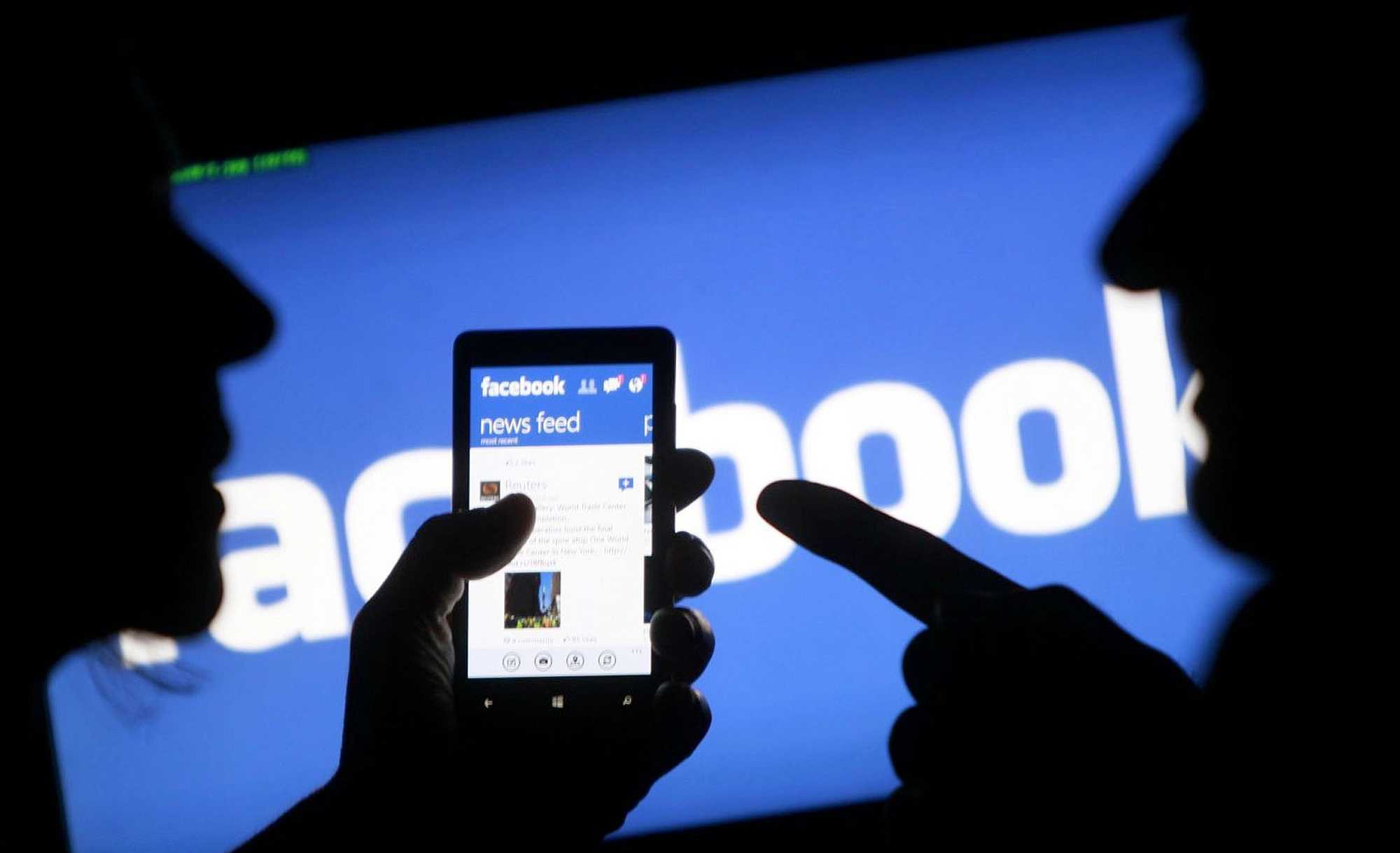Facebook now has 2.37 billion active users, not to mention owning WhatsApp and Instagram. It’s almost impossible to read a newspaper or online magazine these days without finding an article blasting social media for its ill will toward mankind.
Facebook co-founder and Mark Zuckerberg’s former roommate at Harvard, Chris Hughes, suggested the government force the break-up of Facebook in an essay Hughes published in The New York Times last year. In 1890 in the U.S., the Sherman Antitrust Act outlawed monopolistic business practices.
Social media is everywhere, and Brazil is responsible for 10 percent of the total time spent on social media globally, which puts it in second place just behind the United States. Less than half of Brazilians, 48 percent, have regular internet access, but that still represents a digital audience of 100 million people.
Grammarians hate Twitter for the way it’s altering the rules of spelling and inventing words that don’t exist. Teachers think social media is destroying the ability to write in complete sentences or maintain an attention span long enough to read anything bigger than a paragraph.
Psychologists fear social media is creating false safety nets by building networks of friends that never meet. Linguistic scholars note that abbreviations in internet writing are inventing a new language that is actually a return to one of the oldest forms of reading – the scroll.
Similarly, the oldest type of writing, the ideogram, has been reincarnated in the emoji. Thus, reading a book is more modern than texting.
A healthy democratic society depends on access to information. People need to be informed locally and internationally. The internet provides this, but it has also morphed into a quasi-political machine perfectly enabled to spread fake news.
Fifty percent of Americans now say they are using Facebook as their main source of news. The danger of social media as a news source is these companies have no legal responsibility to verify the accuracy of the posted information.
With no restrictions on what is being posted on the internet, users are free to access whatever information or misinformation they choose, and Brazilians are spending a lot of time accessing social media. The average time spent each day by Brazilian social media users is 3.8 hours. In the United States that number is 2.7 hours.
Additionally, the criticism of social media isn’t confined to economics, the decay of language, or fake news. In the global internet environment that has obliterated national borders, we should be experiencing a greater connection to others, but instead social media may be increasing psychological alienation rather than alleviating it.
We can agree that social media has drawbacks, but instead I would like to focus on two very positive aspects.
First, social media has played a critical role in mass political movements. Everywhere from Hong Kong to South America the organization of mass protests has been aided by social media.
For the first time in history, major transformations are reshaping countries thanks to public pressure from social movements that lack any clear leadership from individuals or organized groups. Before the creation of the internet, a social movement without a leader wasn’t possible.
Social media prompts from celebrities have been instrumental in organizing mass support for animal rights, environmental protection, etc. Most recently, the Prime Minister and his Cabinet resigned in Lebanon after mass protests. Similarly, the President of Bolivia, Evo Morales, after being re-elected to a fourth term, resigned and left Bolivia.
Whether one’s political sympathies are on the Left or the Right, in the annals of democracy, mass protests foster dialogue between the people and their elected representatives. Mass movements don’t always have the best results, but they are an essential element of political communication worth protecting.
The second positive aspect of social media is it’s addictive. While this reality is also a common criticism, the fact is because people come to rely on social media, it affords the opportunity for analyzing users’ habits on a massive scale. In this way, we are able to gather valuable information about human nature.
Social media users’ habits are evaluated in the same way TV viewing habits are evaluated because television is also addictive. When TV first became popular in the U.S. in the 1960s, there was widespread criticism of its dangers. When color TVs were first introduced, some people claimed they caused cancer after excessive exposure.
As a boy in the U.S., my parents warned me not to sit too close to the TV, a common warning, as remote control devices hadn’t yet been invented and TVs were small. The first color TVs manufactured in the U.S. had 21-inch screens, smaller than my current Mac desktop.
We were also warned about the dangers of microwave ovens when they first appeared. However, now no one is talking about getting cancer from TVs or TV addiction. Instead, the fear is the addictive nature of social media and the internet.
There have been studies in Japan showing the increase of farsightedness among male adolescents, which they believe is related to excessive screen time. There are rehab centers for detoxing from video game addiction.
Today, Brazilians spend more time on the internet than they do watching TV, logging on for an average of 5 hours per day on weekdays. It’s worth noting that 40 percent of the Brazilian populace is under the age of 25.
There’s an important message hidden in the data on internet usage. The lesson concerns gender breakdown. While boys are more adept at and therefore more likely to be addicted to video games, social media platforms like Facebook and Instagram are more popular among girls.
Video games require a skill that improves through repetition and requires eye/hand coordination, which boys are apparently more adapted for than girls. While many girls enjoy video games, it’s an activity dominated by boys, many of whom continue to play into adulthood.
What is illustrated by this gender divide is the way in which internet diversions serve different purposes. In other words, boys and girls are addicted to the internet for different reasons.
Boys utilize a network of video game friends who are often virtual friends, similar to girls’ friends on Facebook. However, boys enjoy the virtual (or real) company of their game pals without the need for talking, whereas girls’ internet activities center around platforms that require talking and writing, endeavors destined for sharing thoughts and feelings.
Along with sharing on Facebook and Instagram, girls are using their communication skills with other apps like Snapchat, Pinterest, and LinkedIn. There are teenage girls with thousands of YouTube subscribers generated from producing monologues by and about themselves.
Why have only a few girlfriends when you can make friends with the entire world through free international websites like Conversation Exchange. Young women in their twenties accumulate a thousand friends on Facebook, and ambitious women in their thirties can gather a hundred thousand followers on Instagram.
In Deborah Tannen’s seminal work, You Just Don’t Understand, a book on the social differences between men and women, she cites research verifying that during the course of a day, females generally speak more words than males.
Teenagers want to express themselves on the internet because the screen is interactive, making it antithetical to TV. “You don’t think in one constant line of thought,” as an adolescent girl who has hundreds of thousands of YouTube subscribers stated in The New York Times. For adolescents, TV is made by old people for old people.
Females are born communicators. It’s how they survive. Since the dawn of civilization, they have learned to use words instead of their fists to navigate the labyrinth of social interactions. Women are facilitators and negotiators; they are more adept at listening and more empathetic than men in general.
Girls read and write better than boys in grade school. Women survive and contribute to society thanks to their social connections. They are often the glue that holds a family together. That’s why social media is so important and so addictive for girls all over the world.
Social media provides connections. Girls spend more time on their phones than boys, even if they are only leaving messages for each other on WhatsApp.
It’s not only the interpersonal relations and communication opportunities that draw girls to social media. The immediacy of instant recognition through Comments and Likes is thrilling, especially for shy, adolescent girls.
Along with the explosion of the popularity of social media, the technology revolution has supplied girls with cameras on their cellphones, providing an easy and fast route for receiving recognition. Here are the ice-cream sundaes, the new shoes, and the trip to Trevi Fountain in Rome.
Those social media Likes morph into Followers, enough Followers and you have an Influencer and the route of recognition earns income. For teenage girls who are introverted, Facebook, Instagram, YouTube, and WhatsApp are their strongest connection to a community.
We all seek acknowledgment. We want to be assured that, ‘I’m a good person. I don’t cheat or steal even when I have the opportunity. I do my best. Don’t I deserve recognition?’ Everyone deserves recognition – male and female, young and old, Brazilian and American.
No one is more in need of recognition than females. Males have been dominating females forever. We know the earliest societies were controlled by men because we can still observe them in the Amazon. These tribes have leaders who are men, and the second in command is also a man, the shaman.
Much has improved for women in the past hundred years, but as the #MeToo movement has shown, there’s still a lot to accomplish when it comes to empowering females. Thus, girls and young women are drawn to the gratification of the internet.
According to psychologists, our physiological needs (food/shelter) form the foundation of our existential pyramid, which then moves upward to safety, social needs, confidence, and self-esteem.
Social media utilizes the skills where females naturally excel – communicating and connecting – and thereby provides them with acknowledgement, confidence, and recognition. Social media empowers females.
B. Michael Rubin is an American writer living in Brazil. This article originally appeared in slightly different form on his website https://www.bmichaelrubin.com/














